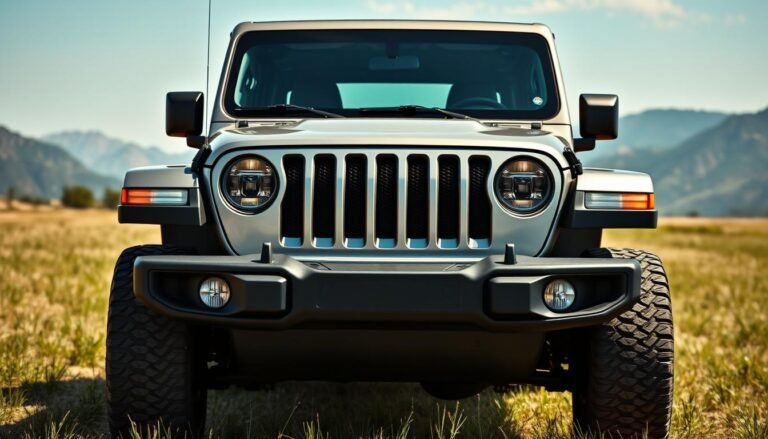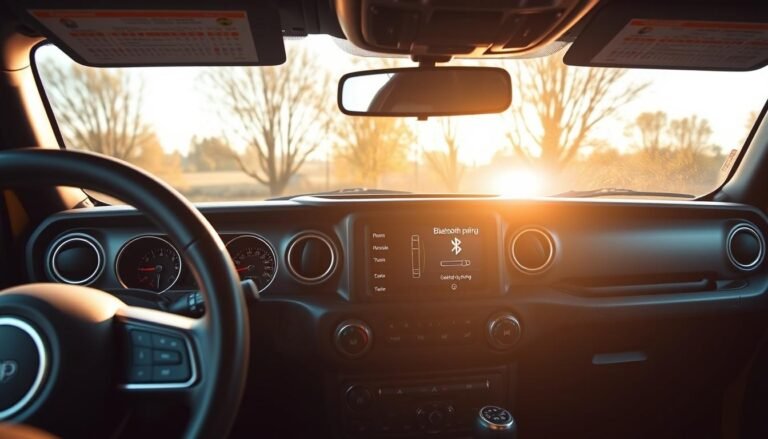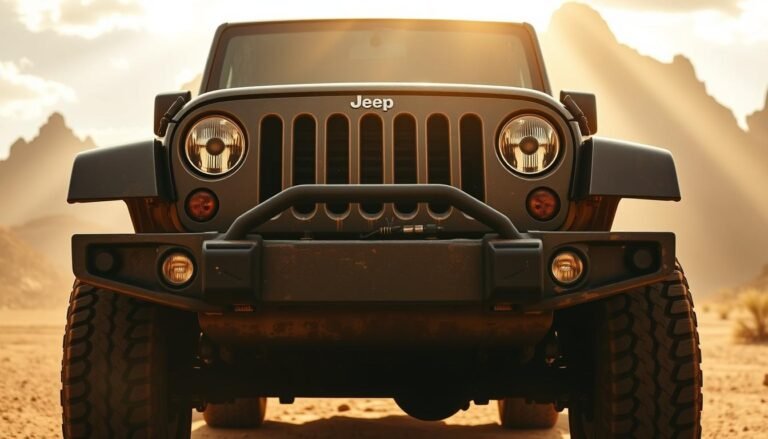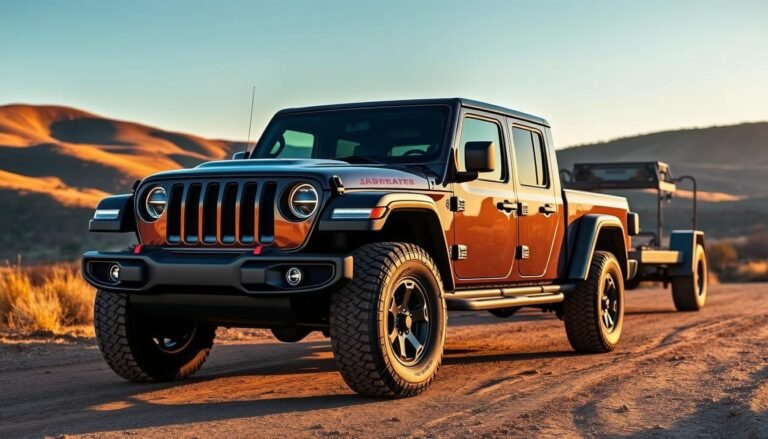Troubleshooting: My Jeep Cherokee Won’t Start
If your my Jeep Cherokee won’t start, you’re definitely not alone. Many owners find themselves in the same frustrating situation.
In this guide, we aim to help you troubleshoot starting issues with your Cherokee. We’ll start by looking at common problems like battery issues, fuel system failures, or ignition troubles.
Knowing about these helps you find the right fix. Let’s focus on what your car tells you, like dashboard signals and how the engine reacts when you try to start it.
We’ll also cover basic checks you can do yourself. This guide gives you step-by-step instructions to diagnose and fix problems.
It includes advice on checking the battery, understanding fuel system issues, and inspecting the starter.
You’ll get the knowledge to pinpoint issues like a bad crankshaft sensor and what steps to take next.
Keep reading for more insights into why your Jeep Cherokee won’t start. We’ll make sure you’re well-informed and ready to tackle these issues with confidence.
What is The Common Reasons For Jeep Cherokee Starting Problems?
Having trouble starting your Jeep Cherokee can be super annoying. There are many reasons why your Jeep might not start.
Drained batteries, ignition issues, and fuel system problems are usual suspects. Fuel problems can make it hard for your Jeep to start too.
If the fuel pump has issues or the lines are blocked, fuel can’t get to the engine right. Knowing these issues helps you find and fix the problem quicker.
Here’s a look at the most common reasons your Jeep won’t start:
| Problem | Description |
|---|---|
| Battery Issues | Dead or weak batteries are the primary culprit in starting problems. |
| Starter Motor Failure | An ineffective starter motor can prevent your engine from cranking. |
| Ignition System Faults | Malfunctioning ignition coils or relays may result in starting trouble. |
| Fuel System Malfunctions | Pumps and filter issues can disrupt fuel flow required for starting. |
Symptoms of A Jeep Cherokee That Won’t Start
When your Jeep Cherokee doesn’t start, it’s crucial to identify the signs. This helps figure out what’s wrong.
Look at the dashboard lights and listen for sounds. These clues are key for figuring out starting problems.
Focus on dashboard indicators and how the engine cranks. These areas are vital in troubleshooting.
Dashboard Lights And Sounds
Turn the key and check the dashboard lights. If they stay on, power is getting through. But, if they don’t light up or are faint, there might be an electrical issue.
Also, listen for any sounds when starting the car. No sounds could mean problems with the battery or starter system.
Engine Cranking Behavior
If the engine cranks but won’t start, you need to investigate further. This means the starter works, but there might be issues with fuel delivery or ignition.
Pinpointing these signs is crucial for solving why your Jeep Cherokee won’t start.

| Symptoms | Indications | Next Steps |
|---|---|---|
| Dashboard Lights On | Power is present | Check battery and ignition system |
| No Dashboard Lights | Possible electrical failure | Inspect battery and fuses |
| No Cranking Sounds | Starter or battery issue | Test the battery and starter connections |
| Engine Cranks but Won’t Start | Fuel or ignition problem | Examine fuel delivery and ignition components |
Basic Electrical Checks For Your Jeep Cherokee
If your Jeep Cherokee won’t start, begin with some simple electrical tests. Use a multimeter to check the battery voltage.
A good battery should show about 12.6 volts. If it’s under 12.4 volts, you might need to recharge or change the battery.
Now, look at the battery terminals for corrosion, as it can block electrical flow. Clean any corrosion with a mix of baking soda and water.
Make sure the connections are tight because loose ones can stop your Jeep from starting. Also, check the battery cables for any damage like fraying.
Damaged cables can cause starting problems. Replace them if needed to improve your Jeep’s ability to start.
By doing these checks, you can troubleshoot a Jeep Cherokee that won’t start more effectively.
Often, fixing your electrical system fixes starting issues before you need more complex fixes.

Power Issues: Why My Jeep Cherokee Won’t Start?
Power issues often lead to worries about why your Jeep Cherokee won’t start. Checking the battery’s health is key in figuring out the problem.
If your battery is weak or faulty, it might not power your vehicle. So, it’s important to regularly check and take care of your battery.
Battery Inspection And Maintenance
First, look at your battery for signs of wear, like corrosion or leaks. Make sure the terminals are clean and tightly connected.
Keep an eye out for these signs:
- Check for corrosion around the terminals.
- Inspect the battery for cracks or bulges.
- Verify that the battery is securely mounted in its tray.
If your battery looks bad or is more than three to five years old, think about getting a new one. This can help you avoid future troubles.
Checking Battery Cables and Connections
Also, check the battery cables. Damaged or faulty cables can cause weak power flow. This often results in your car not starting.
Here’s what to do for a thorough check:
- Ensure all connections are tight and free from rust.
- Investigate cables for any signs of fraying or wear.
- Test the ground connection to confirm it is secure and without corrosion.

By taking these steps, you will not only help your battery last longer but also spot any problems that might stop your Jeep Cherokee from starting.
If you keep having issues, it’s best to get help from a pro. They can look into any deeper electrical problems quickly.
Diagnosing Fuel System Issues in Your Jeep Cherokee
If your Jeep Cherokee won’t start, the fuel system may be to blame. Finding the exact problem is key. Start by checking the fuel pump’s working condition.
Then, examine the fuel filters and relay connections. These parts are essential for getting the right fuel pressure to the engine for it to start.
Fuel Pump Functionality
To figure out starting issues, first look at the fuel pump. Turning the ignition should make the pump hum for 3-5 seconds. This hum means the pump is working.
If it’s silent, the pump might be broken, which stops fuel from reaching the engine.
Fuel Filters and Relay Checks
Then, look at the fuel filter and relays. A dirty fuel filter can stop fuel from flowing, making it hard to start your Jeep Cherokee.
Make sure the fuel relay works right too. Problems here can cause big fuel system troubles.
Finding and fixing any clogs or failures, like changing the filter or relay, is critical.
| Component | Symptoms of Failure | How to Fix |
|---|---|---|
| Fuel Pump | No sound at ignition, difficulty in starting | Test for power; replace if non-functional |
| Fuel Filter | Engine sputtering, low power | Replace with a new filter |
| Fuel Relay | Intermittent starting issues | Test relay operation; replace if faulty |

Evaluating The Starter and Ignition System
If your Jeep Cherokee won’t crank, look at the starter and ignition system. It’s key to check these parts to find out what’s wrong.
Learning how to check the starter motor and the ignition switch helps find the problem’s cause.
Starter Motor Testing
The starter motor gets your engine going. You can test it by connecting it directly to the battery. If it spins, it might be okay.
But if it doesn’t react, you might need a new one. This test is crucial to see if the starter is why your Jeep won’t crank.
Ignition Switch and Relay Functionality
Checking the ignition switch and relays is also important. They could be messing up the signals to the starter motor. Look for wear or damage.
A broken ignition switch can stop the right signal from getting to the starter. Not checking this could make it hard to figure out why your Jeep Cherokee won’t start.
My Jeep Cherokee Won’t Start? The Role of the Crankshaft Position Sensor
The Crankshaft Position Sensor (CPS) is key for your engine to start. It tells the Engine Control Unit (ECU) where the crankshaft is.
If your Jeep Cherokee won’t start, the CPS might be broken. Knowing signs of a bad CPS can help you fix the problem fast.
Symptoms of A Failing CPS
If your Crankshaft Position Sensor is not working right, you’ll notice things like:
- Prolonged cranking before engine starts.
- Engine stalling or suddenly losing power.
- Difficulty starting under certain conditions, such as cold weather.
- Erratic engine behavior including misfires or rough idling.
Testing and Replacing The CPS
To figure out if the CPS is why your Jeep Cherokee won’t start, do this:
- Disconnect the sensor for inspection, ensuring your vehicle is turned off.
- Use a multimeter to check resistance readings against the manufacturer’s specifications.
- If readings fall outside the prescribed values, replacement of the CPS is necessary.
Advanced Troubleshooting Techniques For Jeep Cherokee No Start Diagnosis
When your Jeep Cherokee won’t start, you need advanced techniques. Start by looking for electrical shorts or damaged wires.
Focus on the starter and fuel pump relays, as they’re often the culprits. Consider swapping relays to see if a bad one is the problem.
An OBD-II scanner is also useful. It helps by finding any error codes related to the issue. If simple fixes didn’t work, dive deeper into the Jeep’s electrical system.
By taking these steps, you can find out why your Jeep won’t start.
Conclusion
When your Jeep Cherokee won’t start, checking everything from the electrical system to the fuel system is key.
By looking at each part one by one, you can find out what’s wrong. This helps you understand how these parts work together and find the problem.
This guide has given you important tips on why your Jeep might not start. Now, whether it’s an issue with the electricity, the fuel, or the starter, you can handle it.
Solving these problems quickly can save you money and make owning a Jeep better.
FAQs
Q: Why won’t my Jeep Cherokee start?
A: A Jeep Cherokee may not start for a few reasons. These might include a dead battery, a broken starter motor, or fuel system and ignition troubles. Tracking down the problem step by step is helpful.
Q: How can I troubleshoot my Jeep Cherokee’s starting issues?
A: Begin with basic checks, like the battery voltage and connections. Examine the battery and cables closely. Then, look into the fuel system components and the starter motor.
Q: What should I do if my Jeep Cherokee won’t turn over?
A: First, check the battery and starting system if the engine doesn’t turn over. A lack of sound could mean a battery problem. Meanwhile, a clicking sound often suggests a starter motor issue.
Q: How can I diagnose fuel system problems in my Jeep Cherokee?
A: Listen for the fuel pump when you turn on the ignition; it should prime. Also, check the fuel filter and relays for any blockages or malfunctions that could stop fuel flow.
Q: What are the signs of a failing Crankshaft Position Sensor (CPS)?
A: Signs of a bad CPS include hard starting, strange engine behavior, or a sudden loss of power. Using a multimeter to test the CPS will show if it needs to be replaced.
Q: How do I check my Jeep Cherokee’s starter motor?
A: Try hooking the starter motor directly to the battery to test it. If it works, the problem could be in the starting system. If not, the starter motor might need replacing.
Q: What advanced troubleshooting techniques can I use for starting issues?
A: Look for electrical shorts or broken wiring, change relays to find faults, and use an OBD-II scanner. This tool helps identify error codes linked to starting issues.
Q: What do I check if my Jeep Cherokee cranks but doesn’t start?
A: If the engine cranks but won’t start, focus on the fuel delivery and ignition. Make sure there’s enough fuel pressure and that the ignition parts work right.







